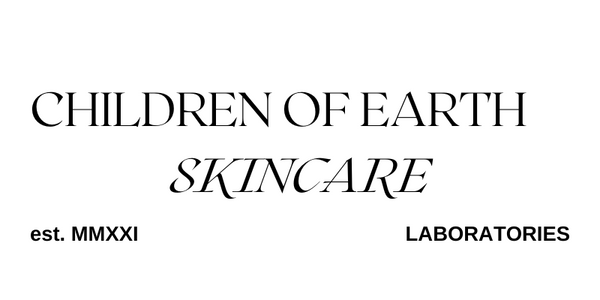
The Micro-Ritual: How to Apply our face oil and use Neuroscience to reduce Anxiety
The latest research from our in-house neuroscience consultant Dr Jennifer Newson shows the power of harnessing the Micro-Ritual to achieve a certain mental state: in this case, reduce anxiety.
We are all creatures of habit. In fact, some scientists estimate that we can spend over 40% of our day doing things on automatic pilot. And when you are short of time, it’s easy to find yourself just applying your Children of Earth Zodiac Face Oil without taking the time to think and indulge in the action of doing so.
But here’s where the difference between a habit and a ritual is important. Habits are repeated or routine actions that you typically do without really thinking - your brain is on autopilot while you are busy pondering something else. But with rituals it’s different. Yes, they are still repeated, routine actions or behaviours, but they have an added ingredient. Thoughtfulness.
For centuries, people have performed rituals across all sorts of walks of life, and science has shown that rituals can be important for things like coping with grief, enhancing the experience of food and handling anxiety.
For example, when people feel anxious about something then they often employ strategies to help them manage that anxiety. One of these coping strategies is rituals. This has been most researched in sports where players often engage in precise rituals before taking a free shot, or when heading out onto the pitch or court, but this also applies to the everyday stresses that we all experience.
And although there is no one right ritual for your skincare routine (everyone is different after all!), we love our calming micro-ritual where you massage 3-5 drops of oil into your face and neck, breathing deeply for 7 seconds and out for 9, repeating 6 times.
Not only is deep breathing great for relieving stress and improving mood, but paying attention like this can intensify your sensory perception, while being present and savouring pleasurable moments can also help to increase positive emotions which in turn contribute to your sense of wellbeing.
In addition, massaging and softly brushing the skin can help to enhance feelings of relaxation and can also activate specific unmyelinated nerve endings in the skin, evoking a pleasant sensation that’s akin to social touch.
For further reading, check out these articles:
References
Brooks AW, Schroeder J, Risen JL, Gino F, Galinsky AD , Norton MI, Schweitzer ME. Don’t stop believing: Rituals improve performance by decreasing anxiety. Organizational Behavior and Human Decision Processes, 2016 137: 71-85.
Hatayama T, Kitamura S, Tamura C, Nagano M, Ohnuki K. The facial massage reduced anxiety and negative mood status, and increased sympathetic nervous activity. Biomed Res. 2008 Dec;29(6):317-20.
Kiken LG, Lundberg KB, Fredrickson BL. Being present and enjoying it: Dispositional mindfulness and savoring the moment are distinct, interactive predictors of positive emotions and psychological health. Mindfulness (N Y). 2017 Oct;8(5):1280-1290.
Löken LS, Wessberg J, Morrison I, McGlone F, Olausson H. Coding of pleasant touch by unmyelinated afferents in humans. Nat Neurosci. 2009 May;12(5):547-8.
Ma X, Yue ZQ, Gong ZQ, Zhang H, Duan NY, Shi YT, Wei GX, Li YF. The Effect of Diaphragmatic Breathing on Attention, Negative Affect and Stress in Healthy Adults. Front Psychol. 2017 Jun 6;8:874.
Mrkva K, Westfall J, Van Boven L. Attention Drives Emotion: Voluntary Visual Attention Increases Perceived Emotional Intensity. Psychol Sci. 2019 Jun;30(6):942-954.
Tonna M, Marchesi C, Parmigiani S. The biological origins of rituals: An interdisciplinary perspective. Neurosci Biobehav Rev. 2019 Mar;98:95-106.
Wood W, Quinn JM, Kashy DA. Habits in everyday life: thought, emotion, and action. J Pers Soc Psychol. 2002 Dec;83(6):1281-97.
